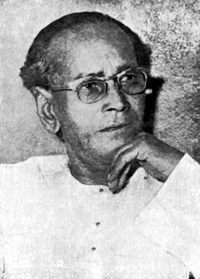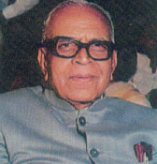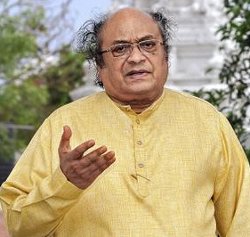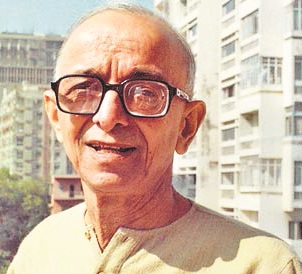Tarasankar Bandyopadhyay Jnanpith Award Awarded In 1966

Tarasankar Bandyopadhyay
Award Name : Jnanpith Award
Year of Award : 1966
Award for : Literature
Location : Tangra, Bengal, India
Tarasankar Bandyopadhyay was a leading novelist of Bengali language. He owns 65 novels, 53 story-books, 12 plays, 4 essay-books, 4 autobiographies and 2 travel stories in his credit. He was the second writer to receive Jnanpith Award, the highest civilian honour in literature, given by Government of India. He received it in the year 1966 for his Bengali work, Ganadevta. He has also received Rabindra Puraskar (1955), Sahitya Akademi award (1956), Padma Shri in 1962 and Padma Bhushan (1969). He also received the Sharat Smriti Puraskar and the Jagattarini Gold Medal from the Calcutta University. He was also active in politics. He has served Rajya Sabha between 1960 and 1966. Tarashankar Bandopadhyay was born at Labpur, Birbhum district, West Bengal to Haridas Bandyopadhyay and Prabhabati Debi. He cleared the Matriculation examination in 1916 and took admission in the intermediate class at the prestigious St. Xavier's College, Calcutta. While studying there, he joined the non-cooperation movement. He was jailed for a year in 1930, and after his release in 1931, he devoted himself to literature and social work.
His novels are rich in material and potentials. Tarasankar belongs to that group of writers of the third decades of 20th century who broke the poetic tradition in novels. He added romance to human relationship and his works were accepted it in a new way allowing the reader to breathe the truth of human relationship. His poetry collection was published with the name Tripatra (1926). But later on, he concentrated most on novels, drama and short story collection. His best novels include – Panchagram, Hansuli Banker Upakatha, Aranyabahni, Yogobhrashta, Raikamal, Chhotoder Sandipan Pathshala, Shakkar Bai, Kishkindhya Kando, Shuksari Katha and much more. His short story collection includes – Chhalanamoyee, Tarasankarer Shrestha Galpa, Tarasankar Bandyopadhyayer Priyo Galpo, Swa-Nirbachito Galp and Gobin Singher Ghora.







